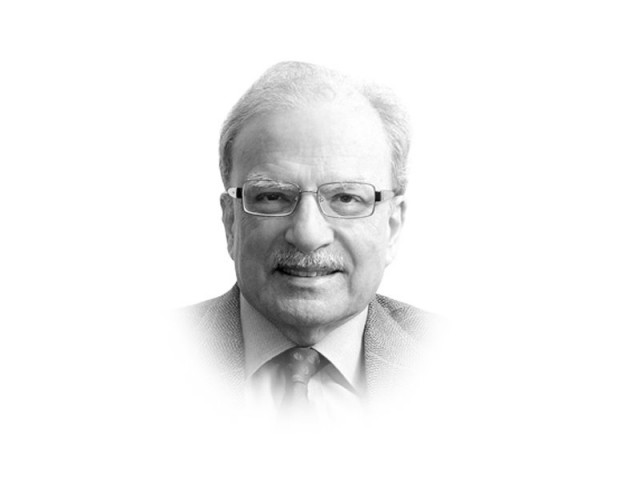South Asia in the emerging world order
Donald Trump’s unexpected political rise is more than just intriguing

The writer is a former caretaker finance minister and served as vice-president at the World Bank
These developments should worry Asia, in particular the southern part of the continent. Judging from the commentary in the South Asian media, it appears that there is much fascination with the Trump drama. It is seen as political theatre. It is yet to dawn on the politically-wise pundits that the South Asian region which was next in line to benefit from the world economic and political order built after the end of the Second Word War would greatly suffer. That order is now under threat. It had essentially three features.
One, it was based on the rule of law put in place by agreement among states and was not enforced by one powerful nation. Two, institutions of governance were established to ensure that internationally agreed principles were followed by all nations. Three, countries could not follow their own interests; they had to abide by international law. Donald Trump’s rise is expected to dismantle this order. The conduct of international trade was by far the most important element of this economic order. It was trade that propelled forward the countries in East Asia the World Bank called the “miracle economies.” China was the next big beneficiary of this system. Next in line were the countries of South Asia. It was this recognition that brought in China to Pakistan with its China-Pakistan Economic Corridor. (CPEC)
What has given the new American president the clout is the support he has received from the people who were not political regulars. Since they were not active in politics they did not figure in the many polls that were conducted as the Americans headed for the November 8 presidential elections. It was their vote for Donald Trump that put him in the White House. It is their politicisation that will push the existing global economic order in a direction that will harm many world regions, in particular South Asia. Post-election survey data suggests that the Trump voters were not bothered by his bigotry, lack of decency, thin-skinned approach to criticism and his use of cooked up data to get across his ideas. Soon after the elections were over, there was near-consensus that these voters went for Trump since they had been badly hurt by the process of globalisation. There was job loss because of the migration of many industries to countries such as China and Mexico. Lower-paying jobs went to immigrants from Mexico and the countries in Central America. Trump seems to have read the situation correctly winning the support of this group by promising to bring back to the US, the industries that had left and building a wall along the country’s southern border to keep out illegal immigrants who have entered America. These people want policymakers to concentrate on what is good for America, not necessarily support a rule-based world order.
The most damaging aspect of the new system Trump is likely to put in place is that it will, in his words, place “America first.” Washington would not subscribe to a world system which requires that some classes in the country may get hurt. The most important consequence of this approach will be in the area of international trade. It will become protectionist rather than open and rule based. This will come about just as South Asia was getting ready to step in the shoes of China which was moving out of manufacturing of goods that would be produced by cheap and not highly trained workers. CPEC was supposed to move Pakistan in that direction.
Published in The Express Tribune, January 16th, 2017.
Like Opinion & Editorial on Facebook, follow @ETOpEd on Twitter to receive all updates on all our daily pieces.















COMMENTS
Comments are moderated and generally will be posted if they are on-topic and not abusive.
For more information, please see our Comments FAQ